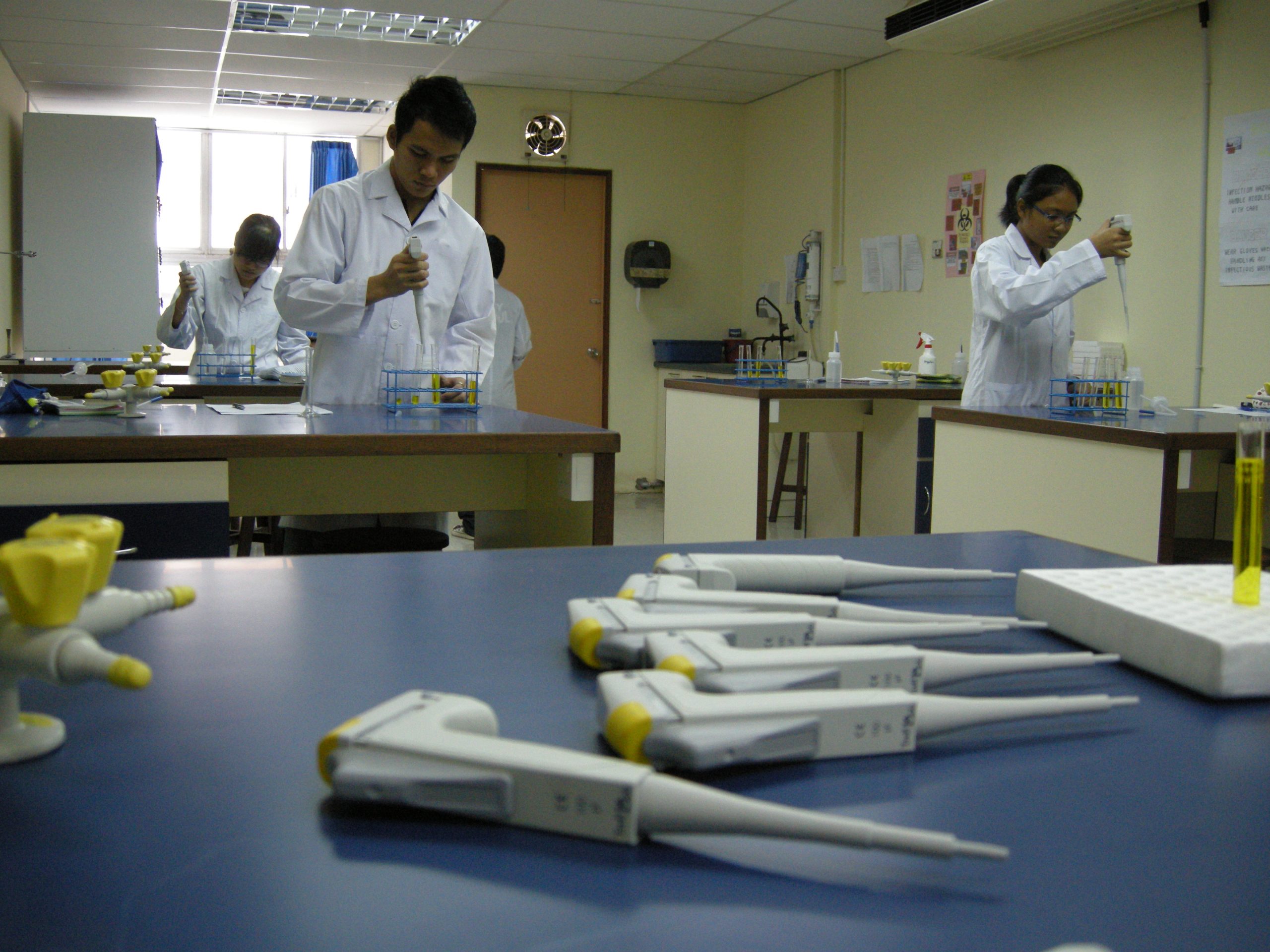We have seen and acknowledge that the use of technologies in the healthcare industry is not a new thing for us. In fact, most of the hospitals and laboratories in Malaysia are slowly adapting technologies usage in their daily operations ranging from biological samples delivering and processing, disease diagnosing, clinical results interpretation and reporting up to performing surgeries on the patients.
In the healthcare industry, drug tolerance in medicine treatment and new microbe strains development poses great challenges in biotechnology field to produce new effective therapeutic drugs. Besides, alteration of genes in gene therapy has been performed to cure certain severe genetic disorders including but not limited to immunological, haematological, ocular disorders and some types of cancers. Additionally, the development of new drug delivery system (DDS) with the use of nanoparticles technology further enhance the treatment of the diseases.
On the other hands, advancement on the Internet of Things (IoT) greatly transforms the ways of collecting, sharing, and analysing data in the healthcare industry. With the use of cloud technology, the patient’s medical and treatment records will be kept confidentially and able to access whenever possible by authorized healthcare professionals despite the location of the patients. The patient may also be able to access and monitor their health conditions through mobile applications.
The use of microprocessor chipsets and biosensors implanted in the body (Internet of Bodies) or through smart devices like smart wristbands, to collect crucial health information including pulse rate, blood oxygen levels, blood pressure, calories burn and many more. All collected readings can be seamlessly transferred through a wireless connection to the mobile applications for documentation and can be accessed, monitored, and analysed by the healthcare professionals when needed.
Furthermore, artificial intelligence (AI) usage in healthcare industry tremendously enhanced healthcare outputs in supporting diagnostics and provide solutions in dealing with medical demands. All solved medical cases will be accumulated to serve as a huge database to improve or support the decision-making process. With the capability of data inputs, this enabled the growth of the healthcare-related AI applications such as robot-assisted surgery, 3D-bioprinting for prosthetics and development of patient-specific replicas of organs and body parts to save time and resources on finding new suitable donors and the most important things is to avoid tissues rejection in the patient after the transplantation.
At SEGi College Sarawak, we offer few programs related to healthcare which can create a career pathway for graduates into the healthcare industry. Healthcare related programs offered here at SEGi College Sarawak include Diploma in Healthcare, Diploma in Medical Laboratory Technology, Diploma in Occupational Health and Safety (OSH) and Certificate in Science.

